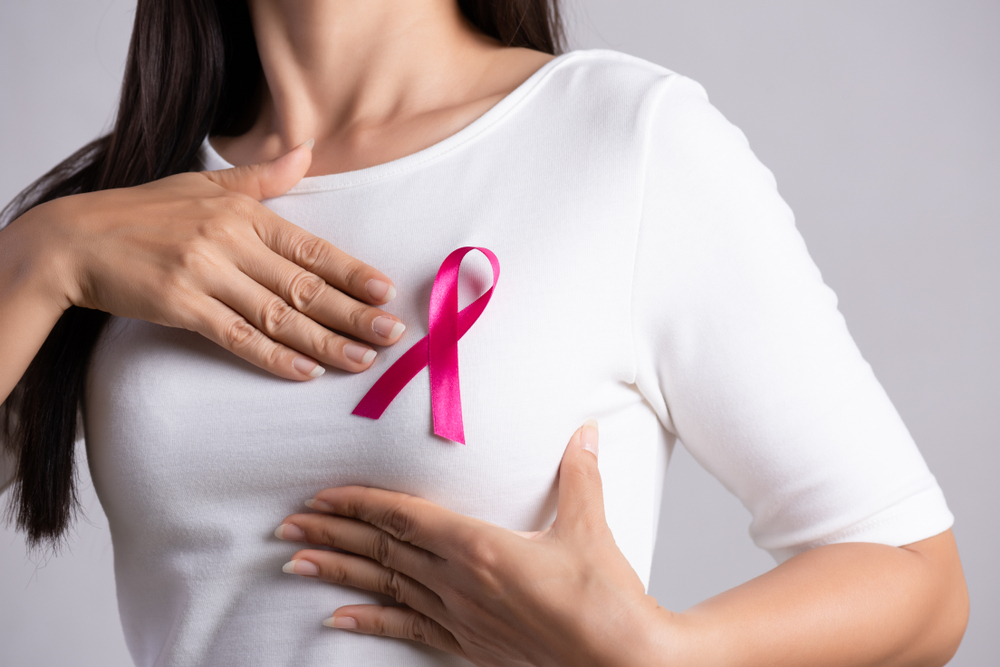Cause of Breast Cancer & its Treatments
Breast cancer is a kind of cancer that originates in breast cells. It is one of the most common cancers affecting women worldwide, but it can also occur in men, albeit less frequently. Breast cancer is one of the most prevalent cancers worldwide and a leading cause of cancer-related deaths among women.
Let's discuss the symptoms of breast cancer. If you notice any of these symptoms or have concerns about your breast health, it's important to consult with a breast cancer specialist in Coimbatore for further diagnostic tests.

Symptoms of Breast Cancer:
Lump in the Breast: A new, painless lump or mass in the breast is one of the most common signs of breast cancer. It may feel firm and have irregular edges.
Breast Pain or Discomfort: While breast cancer is not usually painful in its early stages, some people may experience breast pain or tenderness.
Changes in Breast Size or Shape: Unexplained changes in the size or shape of one breast, or noticeable asymmetry between the two breasts, can be a symptom.
Skin Changes: Look for changes in the skin of the breast or nipple, including redness, dimpling, puckering, or a rash that doesn't go away.
Nipple Changes: Changes in the nipple, such as inversion (turning inward), discharge (other than breast milk), or a scaly, crusty appearance, should be evaluated.
Swelling: Swelling or thickening of a part of the breast, particularly if it's different from the surrounding tissue, can be concerning.
Breast Discharge: Spontaneous nipple discharge, which may be bloody or clear, can be a sign of breast cancer.
Changes in the Skin Texture: The skin on the breast may appear dimpled, similar to the texture of an orange peel.
Enlarged Lymph Nodes: Swollen lymph nodes under the armpit or around the collarbone can be a sign that breast cancer has spread.
Persistent Breast Pain: Ongoing, unexplained pain in the breast or armpit should be evaluated by a healthcare professional.
Causes of Breast Cancer:
Genetic Factors:
- BRCA1 and BRCA2 Mutations: Inherited mutations in the BRCA1 and BRCA2 genes significantly increase the risk of breast cancer. These genes play a role in repairing damaged DNA, and mutations can lead to the uncontrolled growth of breast cells.
- Other Genetic Mutations: Besides BRCA1 and BRCA2, there are other genetic mutations, such as TP53 and PTEN mutations, associated with an increased risk of breast cancer.
- Estrogen and Progesterone: Exposure to estrogen and progesterone over an extended period, such as early menstruation, late menopause, or hormone replacement therapy, can increase the risk of breast cancer.
- Pregnancy and Breastfeeding: Having more full-term pregnancies and breastfeeding for an extended period may reduce the risk of breast cancer.
- Individuals with a personal history of breast cancer or a family history of breast or ovarian cancer have an increased risk.
- Family history of male breast cancer can also raise the risk.
- Breast cancer risk increases with age, with the majority of cases occurring in women over 50.
- While breast cancer is much more common in women, men can also develop the disease.
- Exposure to ionizing radiation, especially during childhood or adolescence (e.g., radiation therapy for another cancer), can increase the risk of breast cancer.
- Obesity: Being overweight or obese, especially after menopause, is a risk factor.
- Physical Inactivity: A sedentary lifestyle may contribute to a higher risk.
- Diet: A diet high in saturated fats and low in fruits and vegetables may be linked to an increased risk.
- Early Menstruation and Late Menopause - Starting menstruation before age 12 and experiencing menopause after age 55 may increase the risk.
- Not Having Children or Having First Child After Age 30: Women who have not had children or had their first child after age 30 may have a slightly higher risk.
Surgery:
Lumpectomy (Breast-Conserving Surgery): In this procedure, only the tumor and a small amount of surrounding tissue are removed, preserving the rest of the breast.
Mastectomy: A mastectomy involves the removal of the entire breast. There are different types of mastectomies, including simple mastectomy, modified radical mastectomy, and radical mastectomy.
Sentinel Lymph Node Biopsy: During surgery, the sentinel lymph node (the first lymph node to which cancer cells are most likely to spread) is removed and examined to determine if cancer has spread to the lymph nodes.
Radiation Therapy:
Radiation therapy uses a high beam of x-rays to kill the cancer cells. It is often used after lumpectomy to reduce the risk of cancer recurrence or after mastectomy in certain cases.
Chemotherapy:
It involves the use of drugs to kill the cancer cells or stop the growth of the cancer cells. It may be administered before surgery (neoadjuvant chemotherapy) to shrink tumors, after surgery (adjuvant chemotherapy) to kill any remaining cancer cells, or as the primary treatment for advanced or metastatic breast cancer.
Hormone Therapy:
Hormone therapy is used for hormone receptor-positive breast cancers, which rely on hormones like estrogen and progesterone to grow. Medications, such as tamoxifen or aromatase inhibitors, are used to block or reduce hormone production or activity.
Targeted Therapy:
Targeted therapies are drugs that specifically target cancer cells or the pathways that promote their growth. Examples include trastuzumab (Herceptin) for HER2-positive breast cancer and palbociclib (Ibrance) for certain types of hormone receptor-positive breast cancer.
Immunotherapy:
Immunotherapy works by stimulating the body's immune system to recognize and attack cancer cells. It is less commonly used in breast cancer but may be an option in certain cases.
Closing thoughts:
Breast cancer treatments are evolving with medical science. It is advisable to check with a breast cancer hospital before implementing any therapies. Sri Ramakrishna Hospital offers Breast Cancer Treatment in Coimbatore with the latest technologies and they have the best team of oncologists who are highly experienced in treating cancer.


.png)
Comments
Post a Comment